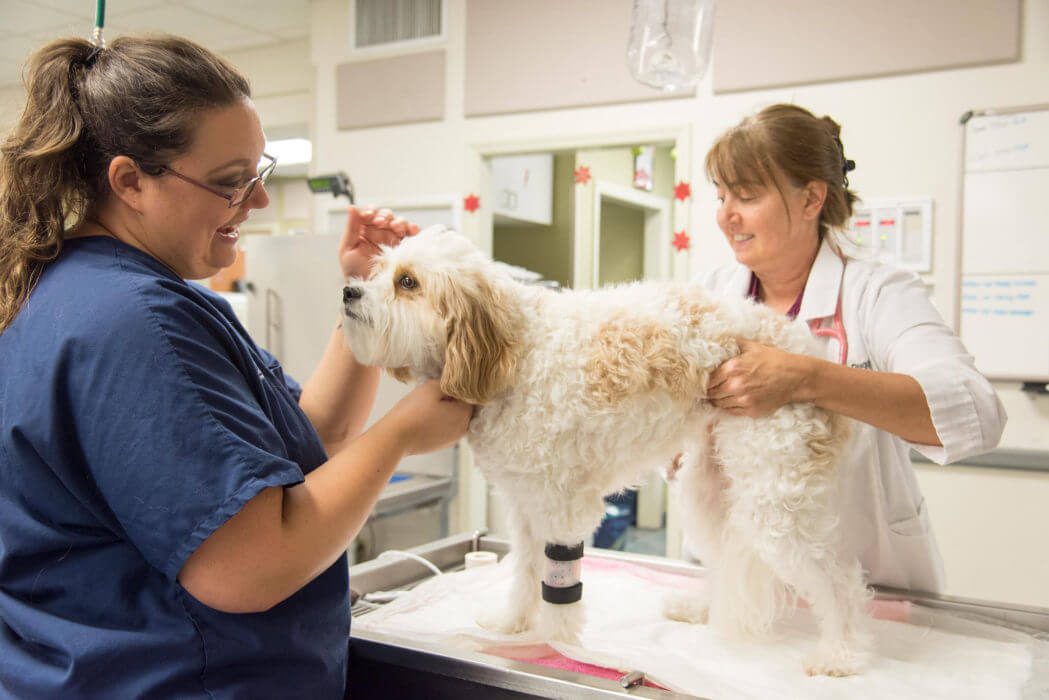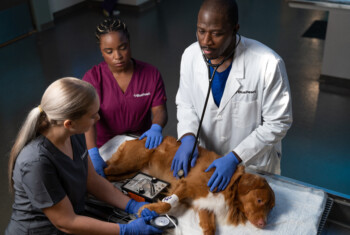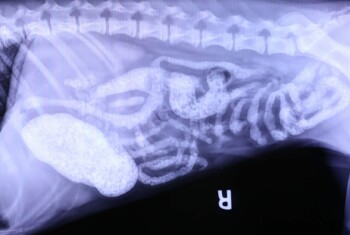Ear infections in dogs: Symptoms, causes and treatment options.
Otitis externa, or inflammation of the external ear, is a very common ailment in dogs. Often there is an infection present.
Symptoms may include:
- An odor or discharge from the ear
- Scratching of the head or ears
- Headshaking
- Soreness, redness and/or swelling of the ear flap
However, some dogs show very few symptoms and will only be diagnosed when a doctor examines the ear with an instrument called an otoscope.
What causes ear infections in dogs?
Otitis has many INITIATING causes. Some examples include:
- Flea allergies
- Atopic dermatitis, which is an allergic reaction that occurs when an animal inhales airborne substances (pollen, house dust) or ingests (eats) a substance to which they are sensitive
- Ear mites
- Foreign bodies
- Hormone imbalances (thyroid, adrenal, sex hormones)
- Anatomical abnormalities such as scar tissue from previous ear infections, excessive hair in the ears, floppy pendulous ears or polyps/tumors in the ears
- Water in the ears (swimming, bathing)
Yeast or bacterial infections will complicate otitis externa; however, these germs do not start an ear problem.
Diagnosis.
In order to diagnose and treat an ear problem, we do the following:
- A complete history to help identify an initiating cause
- A complete dermatological examination since frequently the ear infection is part of an overall skin problem
- A thorough otoscopic examination
- A cytological exam (cell examination) to identify the presence of organisms (yeast or bacteria)
 The otoscopic examination is very important because the ear canal must be evaluated for swelling, discharge and/or ulcers. The eardrum also needs to be visualized to determine if a middle-ear infection exists.
The otoscopic examination is very important because the ear canal must be evaluated for swelling, discharge and/or ulcers. The eardrum also needs to be visualized to determine if a middle-ear infection exists.
The cytological exam is very important, as well, because certain bacteria are hard to treat and need long-term therapy. Also, ear mites can be identified from this test.
Other tests that might be recommended include:
- A deep ear flush under general anesthesia to completely clear the ear canal and make certain the eardrum is intact.
- A video-otoscope using “high tech” equipment to visualize the entire ear canal, eardrum and occasionally the middle ear on a TV monitor. Through this video-otoscope, we collect samples from the ear canal and apply medications. We can also take pictures of the ear canal and eardrum, which assists in monitoring response to therapy.
- A bacterial culture and susceptibility test if the infection is chronic or the eardrum is ruptured.
Treatment.
After the cause of the otitis has been determined, appropriate medication is prescribed. It is essential to do a follow-up exam in 7 days. Although the symptoms may disappear during the treatment, the problem (disease) may persist. Most infections need medication for at least 7-14 days after the infection has resolved. An otoscopic examination is the only way to be sure the ear problem is gone. If the otitis recurs or becomes chronic, further testing or procedures may be needed (allergy testing, elimination diets, etc.)
If the eardrum is ruptured, the middle ear will need to be flushed out using the video-otoscope and skull radiographs +/- a CT scan. These procedures are done under general anesthesia.
Even though there are many underlying causes of otitis, most cases respond quickly to treatment, especially if the initiating cause is addressed. The sooner the pet with otitis is seen, the easier (and less costly) the treatment may be.
For more information on this subject, speak to the veterinarian who is treating your pet.


